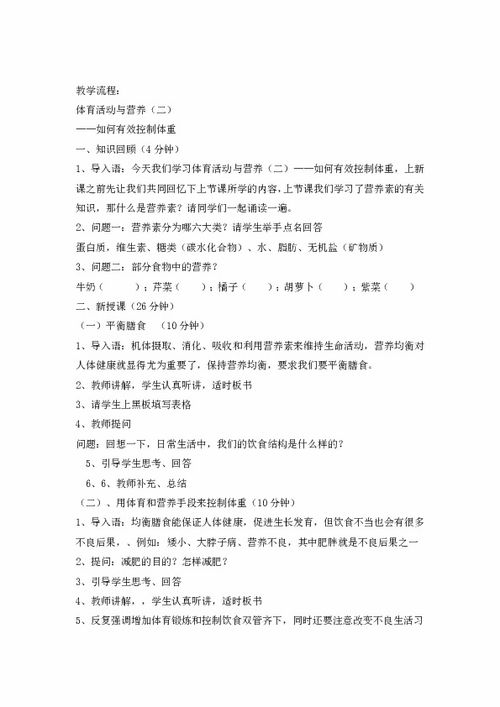Title: Comprehensive Physical Education Lesson Plans for PreKindergarten, Kindergarten, and Preschool Classes
Introduction:
Physical education is crucial for the holistic development of young children, fostering not only physical health but also cognitive and socioemotional skills. Tailoring lesson plans for prekindergarten, kindergarten, and preschool classes requires careful consideration of ageappropriate activities and learning objectives. Below, I outline comprehensive physical education lesson plans for each of these early childhood stages.
PreKindergarten Physical Education Lesson Plan:
*Objective:*
To introduce fundamental movement skills and promote social interaction among prekindergarten children.
*Activities:*
1.
Warmup (5 minutes):
Begin with a fun dance or movement activity to engage children and prepare their bodies for physical activity.
2.
Obstacle Course (15 minutes):
Set up a simple obstacle course with cones, tunnels, and mats. Encourage children to crawl, jump, and balance through the course.
3.
Animal Movements (10 minutes):
Guide children through imitating animal movements such as hopping like a bunny, waddling like a duck, or stretching like a cat.
4.
Ball Games (10 minutes):
Introduce basic ballhandling skills with soft, lightweight balls. Play simple games like rolling or tossing and catching the ball.
5.
Cooldown (5 minutes):
End the session with calming stretches and deep breaths.
*Guidance:*
Keep instructions simple and use visual demonstrations to aid understanding.
Provide positive reinforcement and praise effort rather than focusing solely on performance.
Ensure a safe environment by supervising closely and using ageappropriate equipment.
Kindergarten Physical Education Lesson Plan:
*Objective:*
To further develop motor skills and introduce basic sports concepts in a supportive and inclusive environment.
*Activities:*
1.
Dynamic Warmup (7 minutes):
Incorporate dynamic stretches and movement activities such as arm circles, leg swings, and jogging in place.
2.
Skill Stations (20 minutes):
Rotate through stations focusing on different skills like throwing, kicking, jumping, and balancing. Provide individualized support as needed.
3.
Introduction to Games (15 minutes):
Introduce simplified versions of team games like tag, relay races, or modified versions of soccer and basketball.

4.
Fitness Circuit (10 minutes):
Set up a circuit with stations for exercises like jumping jacks, squats, and plank holds to promote cardiovascular fitness and muscular strength.
5.
Reflection and Cooldown (8 minutes):
Lead a brief discussion about what the children enjoyed and learned during the session. Finish with gentle stretches and relaxation exercises.
*Guidance:*
Encourage cooperation and teamwork through partner activities and group games.
Emphasize sportsmanship and fair play, emphasizing participation and effort over winning.
Adapt activities to accommodate varying skill levels and abilities.
Preschool Physical Education Lesson Plan:
*Objective:*
To reinforce fundamental movement skills and introduce more structured sports activities in preparation for elementary school.
*Activities:*
1.
Energetic Warmup (8 minutes):
Incorporate dynamic movements like jumping jacks, high knees, and arm swings to raise heart rates and increase flexibility.
2.
Skill Development (25 minutes):
Focus on refining specific skills related to sports such as dribbling with hands or feet, throwing at targets, and kicking accurately.
3.
Game Play (20 minutes):
Divide children into small teams for modified versions of team sports like soccer, basketball, or floor hockey. Emphasize rules, teamwork, and sportsmanship.
4.
Fitness Challenge (12 minutes):
Introduce a timed fitness challenge involving activities like jumping rope, running laps, or completing a set of exercises to build endurance and stamina.
5.
Reflection and Stretching (10 minutes):
Facilitate a discussion about teamwork, effort, and improvement. Lead a guided cooldown with stretches targeting major muscle groups.
*Guidance:*
Provide opportunities for children to practice decisionmaking and problemsolving within game contexts.
Incorporate elements of literacy and numeracy by counting repetitions, identifying shapes on the court, or reading simple game instructions.
Offer positive feedback and encouragement to foster confidence and motivation.
Conclusion:
Effective physical education lesson plans for prekindergarten, kindergarten, and preschool classes are designed to promote the development of fundamental movement skills, social interaction, and a lifelong enjoyment of physical activity. By implementing ageappropriate activities and fostering a supportive and inclusive environment, educators can lay the foundation for healthy habits and physical literacy in young children.

